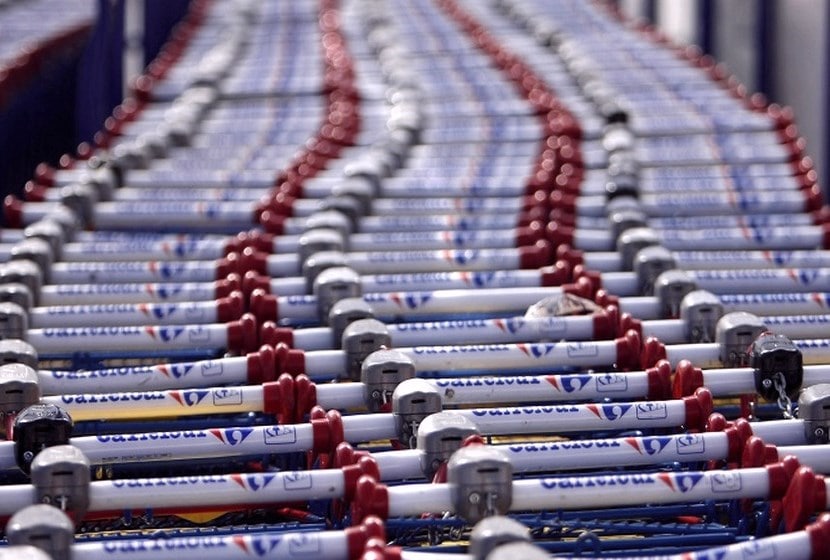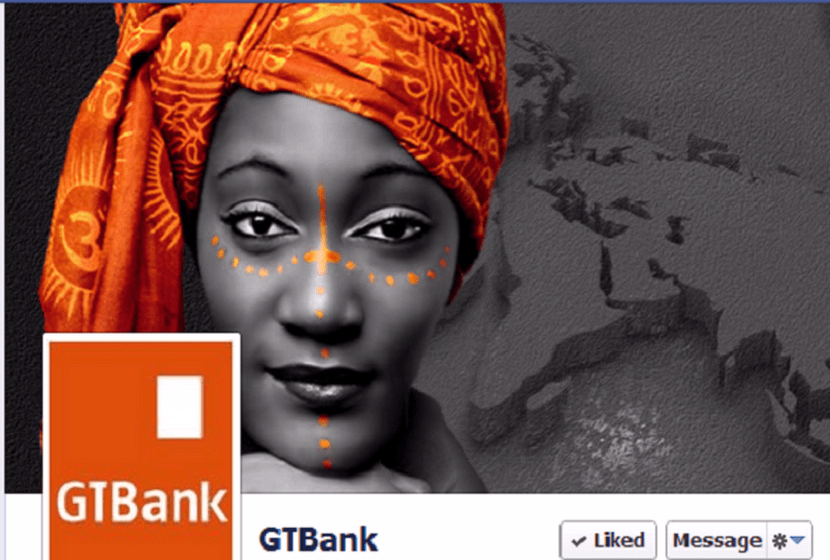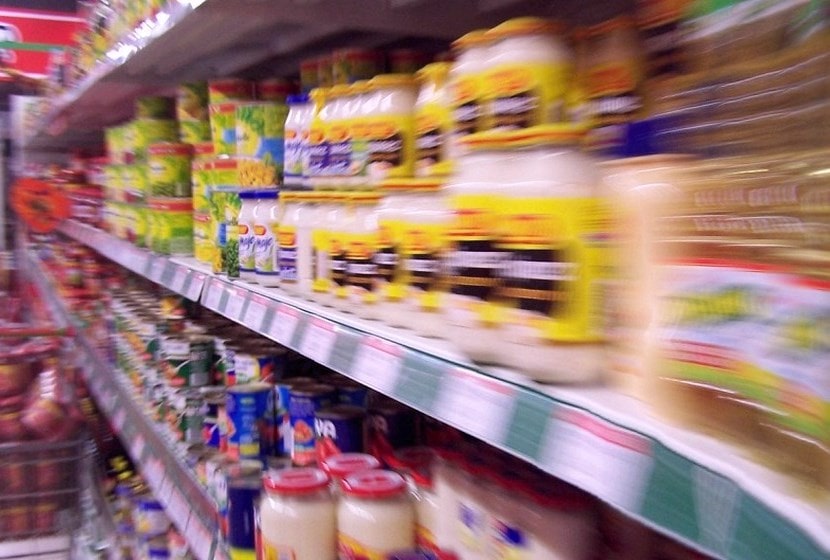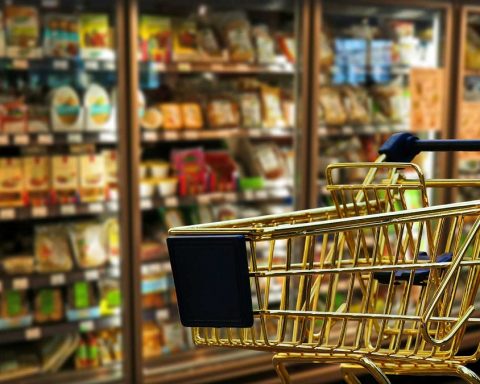To grasp the future of specialised organic retailing is first of all to grasp the current fantastic transformation that all current, old and new forms of retailing are undergoing: mass distribution, digital commerce, short circuits... Powerful transformations are taking place, as we only see every 50 years. Using the methods of eco-prospective, let us take an interest, for the first part of this great dossier, in the major challenges facing conventional mass distribution.
"Seven powerful societal changes are impacting the major retailers..."
I - Introduction: the era of revolutions
 Mass distribution is generally perceived as a threat by the specialized organic distribution, amplified by the arrival of the of "clone" stores of the Heart of Nature type. However, beyond the desire to conquer the organic market, the great general distribution (Leclerc, Carrefour...) and specialized distribution (Darty, Fnac...), is first and foremost experiencing a unique multi-factorial crisis... which undermines its very foundations (mass distribution at lower cost), and places many signs in a deep crisis situation. The time for doubt and questioning has come.
Mass distribution is generally perceived as a threat by the specialized organic distribution, amplified by the arrival of the of "clone" stores of the Heart of Nature type. However, beyond the desire to conquer the organic market, the great general distribution (Leclerc, Carrefour...) and specialized distribution (Darty, Fnac...), is first and foremost experiencing a unique multi-factorial crisis... which undermines its very foundations (mass distribution at lower cost), and places many signs in a deep crisis situation. The time for doubt and questioning has come.
The first part of this great file is a cartography of the major societal and commercial changes that are taking place in the world. are forcing the large conventional distributors to make changes deep sales patterns.
We will also identify strengths, weaknesses and adaptation solutions. supermarkets, so that the specialised organic distribution of organic products can draw salutary lessons from it. The latter, which or will also undergo these upheavals, will have to adapt under to become a minor player in distribution or to see certain of today's big organic retailers disappear.
The following articles will explore the digital tornado of commerce digital, the exemplary changes in American distribution, and the new wave of short circuits, to end with the new fundamentals of the ideal organic shop at the dawn of the new 21st century.
II - 50 years of fundamentals called into question
 Born in the early 1960s with immediate success thanks to revolutionary concepts for the time "No parking, no parking, no parking". of business", "Stack high and sell low", mass distribution perfectly suited to the collective imagination of a French generation of people who marked by the war by allowing the middle class to access material comfort and abundance, making it possible for the emerging thus entering the consumer society on the same level.
Born in the early 1960s with immediate success thanks to revolutionary concepts for the time "No parking, no parking, no parking". of business", "Stack high and sell low", mass distribution perfectly suited to the collective imagination of a French generation of people who marked by the war by allowing the middle class to access material comfort and abundance, making it possible for the emerging thus entering the consumer society on the same level.
This is thanks to a radically new commercial approach: to propose on the outskirts of large stores, with a range of very wide range of standardised products at low prices and self-service.
This art of "all under one roof"... based on a proven track record in controlling the costs of production and advanced logistics (Organic still draws a lot of inspiration from it by recruiting defectors of these sectors), is at the origin of the spectacular success of the great distribution (nearly 70 % of the food consumption passes by the GMS).
However, what was for nearly of forty years the dynamic engine of the distribution becomes for fifteen years a cultural brake penalising in the face of new demands societal, environmental and the emergence of a dangerous player: digital commerce...
III - The great upheaval of 2010
 It is emblematic to note that Carrefour, which opened the first hypermarket of the world in 1963 (a French invention !), is also the one currently experiencing the most difficulties. However all the major players in distribution are or will be affected by at least seven major mutations:
It is emblematic to note that Carrefour, which opened the first hypermarket of the world in 1963 (a French invention !), is also the one currently experiencing the most difficulties. However all the major players in distribution are or will be affected by at least seven major mutations:
1 – The new consumer imaginaries, when the more makes way for the best the "average" consumer today, very different from that of the Glorious Thirty, now reproaches the GMS its remoteness, its gigantism, chronograph races and the coldness of his environment. He watches over his health and mingles junk food, wanting taste, "authentic" products, character, natural, and by consuming more and more of the foods in season. It begins to take into account the place of manufacture, becoming aware with the crisis that the Made in France preserves also jobs, becoming a client-consumer-citizen.
He is looking for both geographical and relational proximity. He asks to be informed, educated, listened to, and wants even participate (collaborative consumption).
In short, his new imagination moves from the most material to the most immaterial. It should be noted that these values, once the prerogative of a consumer-actor bio-convinced, are rapidly becoming more democratic, which explains the interest supported by major distributors for organic, local and environmental products because these trends are becoming much more than just markets for kennels. As a result of this profound social evolution, hypermarkets are in a lasting crisis and are trying to reinvent themselves.
2 - Digital commerce, the enemy always comes from where you don't expect it not: e-commerce has become part of the consumer's life.
 France has 31 million online shoppers and more than 100,000 e-commerce sites for a rapidly growing market estimated at €45.2 billion annually in 2012! Long considered by brands as a minor commercial channel, internet users excellent customer service, a plethora of products and services, and the choice, and the pleasure of shopping at home.
France has 31 million online shoppers and more than 100,000 e-commerce sites for a rapidly growing market estimated at €45.2 billion annually in 2012! Long considered by brands as a minor commercial channel, internet users excellent customer service, a plethora of products and services, and the choice, and the pleasure of shopping at home.
Aware of its importance, each distributor has now its e-commerce site and its "drive", while some are buying back even the pure players (Pixmania taken over by the British distributor Dixons). However, the current appetite of some major e-merchants is such that leading international distributors such as Wall-Mart is starting to get alarmed. In France, Serge Papin, the president of System U, has just confided on Twitter his concern about to the rapid rise of the American Amazon now considered as a very serious rival (Amazon will reach according to him Carrefour's worldwide turnover in 20 months).
Digital commerce, on the other hand, is looking even further ahead with a strategy Sophisticated cross-channel that encompasses the digital course of a consumer, from his home in front of his computer or his iPad to the physical point of sale, setting the stage for the store era connected: e-commerce site, mobile application, touch terminals, actions on social networks, adapted training for salesmen...
Its avowed goal, beyond a coherent operating synergy between the distributor's merchant site and its point of sale, is above all to avoid showrooming (consumer practice). which consists of evaluating a product in a physical point of sale... to buy it cheaper elsewhere online), by playing on services improved customer service, reduced wait times at the checkout long, exclusive products, etc.
Finally, freed from a history and therefore from any preformatted culture, new entrants do not hesitate to propose models economical, a clear break with what distributors offer physical (personalized promotions, manufacture of articles, etc.) on demand (crowdsourcing, extended warranties, etc.). All these important topics will be developed in the second part of this dossier.
3 - Aiming for new savings in services and functionality, collaborative... the commercial revolution of the years 1960-2000 led to the refocusing on logistics functions, with a decisive shift from small commerce to distribution, hence the the term "mass distribution". Today, the latter is becoming still often content to "distribute" products and services from the brands to the consumers, in an "old" logic top-down transactional based on the transfer of a right of property, and from which it derives the majority of its income. The only links withholding it from the consumer being of a commercial nature (advertisements, loyalty cards), or regulatory (guarantees, customer service).
 However, the large service companies (banks, insurers, energy companies) have long been pointing in a different direction: proposing to new business approaches based on a service relationship and advice, thus moving from a "product orientation" to a "product focus". "customer orientation". This so-called "bottom-up" mode of operation the personalized needs of the consumer to offer him or her a range of offer systems, horizontal bouquets integrating goods and services, and services required to solve a problem (provision of a car in case of breakdown, legal aid...).
However, the large service companies (banks, insurers, energy companies) have long been pointing in a different direction: proposing to new business approaches based on a service relationship and advice, thus moving from a "product orientation" to a "product focus". "customer orientation". This so-called "bottom-up" mode of operation the personalized needs of the consumer to offer him or her a range of offer systems, horizontal bouquets integrating goods and services, and services required to solve a problem (provision of a car in case of breakdown, legal aid...).
It also enables the company to sophisticate its business model by offering monthly or annual subscriptions, thus binding the customer. The mobile phone sales is based on this model. However, some innovative distributors (Ikea, Leroy Merlin, Lapeyre, Kbane, Décathlon...), already offer bouquets ofconde generation of so-called "vertical" generations that go further in the process. by closely accompanying the consumer in the elaboration process highly customized solutions for problem solving complex (diagnosis, advisers, delivery, installation...).
However, for Philippe Moati, an expert on distribution, the economy of services is or should be only one step towards a real change of role on the part of mass retailing : go from being a simple merchant to a relationship expert and sustainable quality of life.
Indeed, the link between the seller and his customer is changing profoundly, by becoming strategic. It is no longer just a question of proposing the "right product in the right place", but also to establish a relationship richer and better followed up with a client who has become, we've seen it, eager for an immaterial betterment, through listening, information, training and participation.
Finally, the ecological imperative to reduce energy and water use is a key issue. Mother Nature's materialistic approach encourages the rapid development of an economy functionality where items are no longer just sold to be owned, but also to be rented, shared, exchanged, repaired or self-produced products, either between the store and its customers or between the customers themselves (collaborative consumption). All this leads to the implementation of completely new business models, with which mass distribution is currently very unfamiliar.
These developments are all the more expected, as e-commercants, new, unforeseen and formidable competitors (including for the specialized organic distribution), have already started the big turn...
4 – Multifaceted competition at diffuse borders the business logic of bouquets also results in considerably blur the classic notion of commercial territories, allowing the emergence of original concepts, or increased opportunities: DIY stores now have more opportunities: DIY stores have now their bookstores: Nature et Découverte becomes a tour operator, Decathlon becomes a diversifies into fitness rooms and the rental of grounds and rooms sports, Ikea sells real estate in Northern Europe...
We will see in the second part that, not only is the great distribution is aware of these decisive societal transformations, but she's already started her mutation. Fortunately for specialized organic distribution, which has been lagging behind overall, and even regresses in some cases (choice of location, etc.). the geographical distribution of stores), mass retailing is being held back by the powerful people who partly hinder his efforts.
Savior Fernandez, www.econovateur.com (1st publication : www.biolineaires.com No. 44 Dec 2012)
Passionate about organic for 27 years, Sauveur Fernandez is an independent marketing expert sustainable and eco-innovation. Pioneer French of the principles of communication responsible, he deciphers future trends, and helps brands and retailers to creation of ethical products and services.
{Jacuzzi on}












